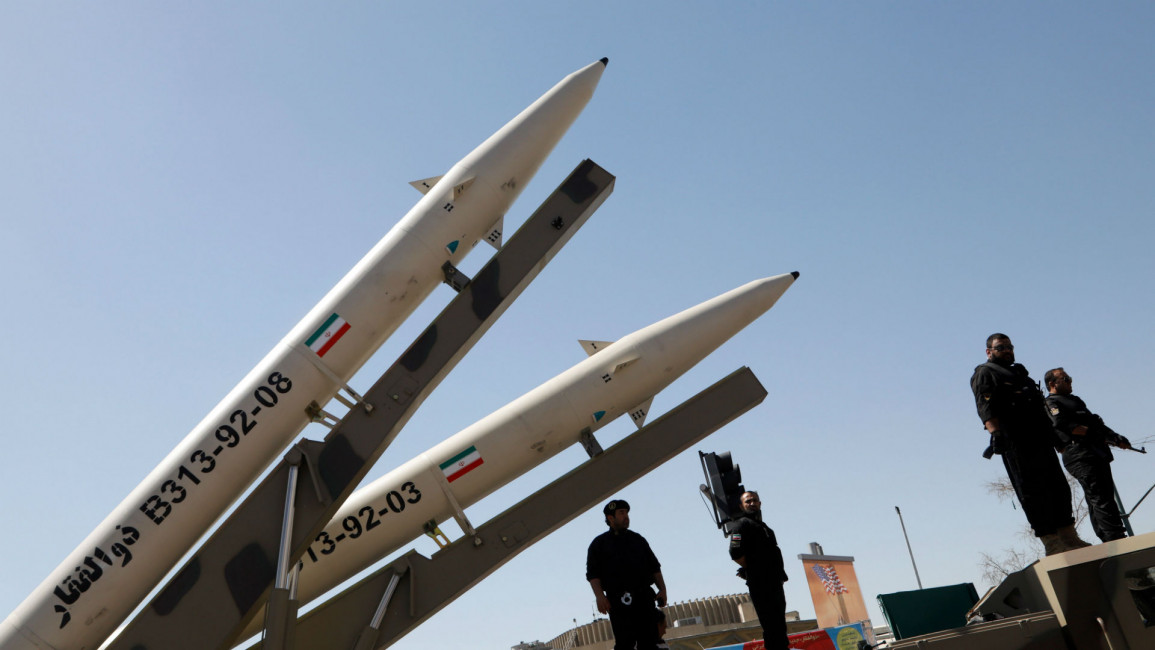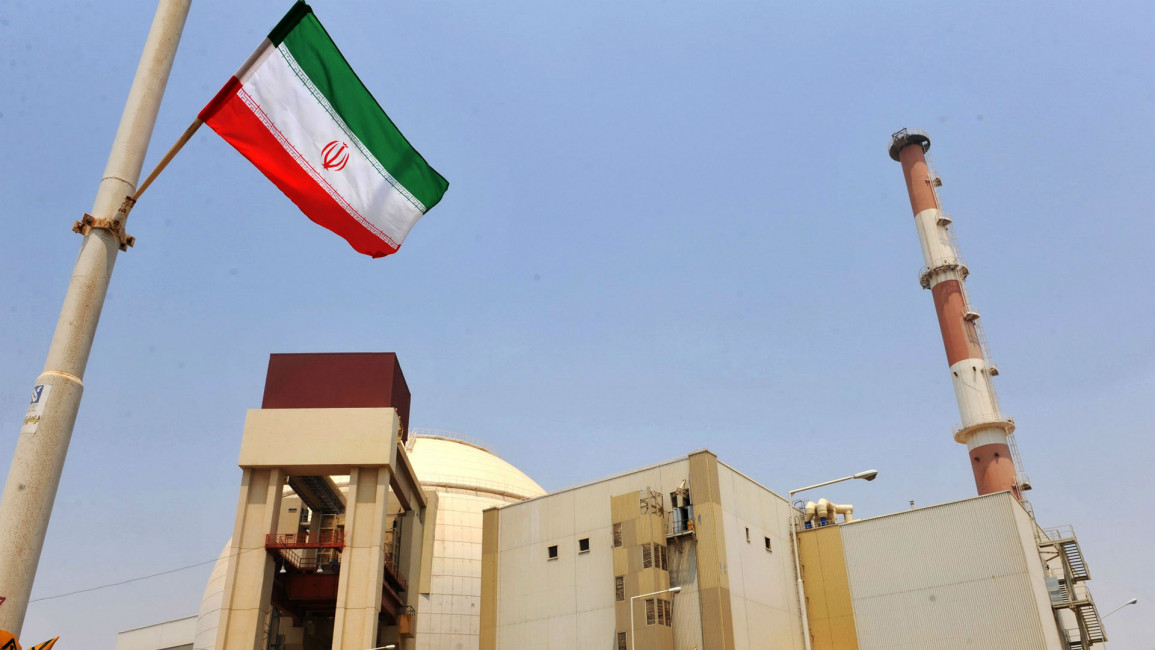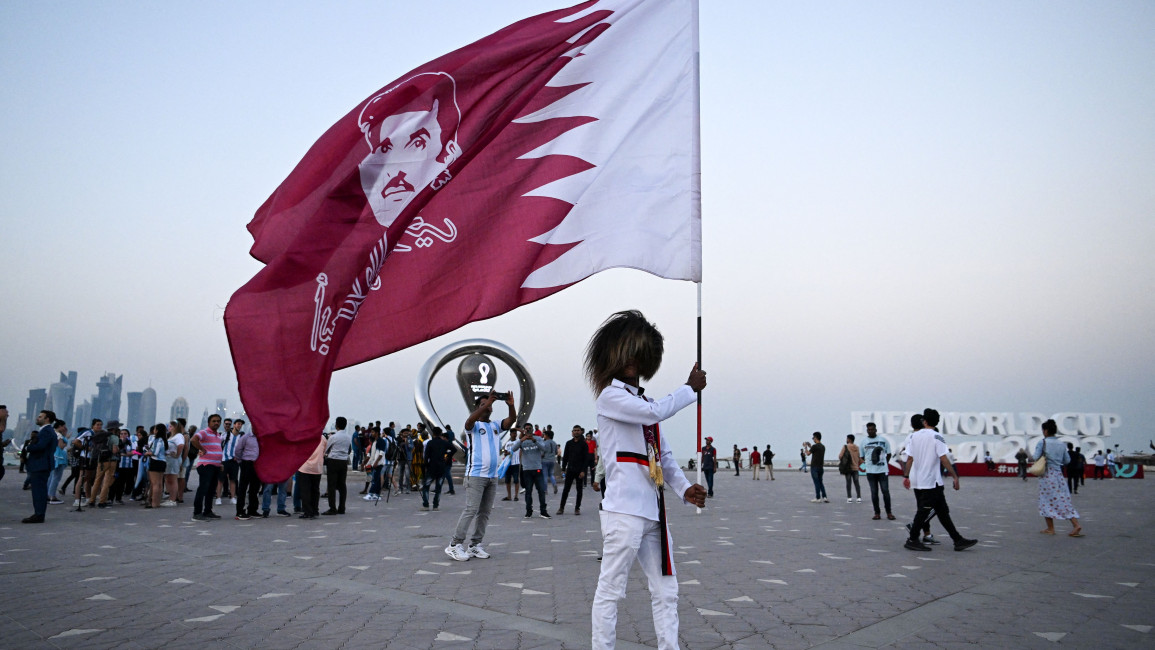
How Iran might respond to extended European sanctions on its missile programme

Sanctions on Iran's ballistic missile program imposed by the United Nations Security Council will expire in October. Despite this, the European Union and the United Kingdom plan to retain their restrictions, something Tehran has warned them against doing.
Following the implementation of the July 2015 nuclear deal, officially known as the Joint Comprehensive Plan of Action (JCPOA), the United Nations Security Council passed Resolution 2231. Among other things, the resolution restricts Iran from developing and producing long-range, nuclear-capable ballistic missiles and exporting such missiles until October 2023.
Former US president Donald Trump unilaterally withdrew the United States from the nuclear deal in 2018. Iran began violating the JCPOA's restrictions on uranium enrichment the following year.
"With the 2015 deal all but dead and Iran supplying Russia with drones for use against Ukraine, and also considering the transfer of missiles, Europe is signalling it will retain sanctions"
Now, with the 2015 deal all but dead and Iran supplying Russia with drones for use against Ukraine, and also considering the transfer of missiles, Europe is signalling it will retain sanctions.
Over the past year, Iran infamously supplied Russia with hundreds of single-use Shahed explosive drones, which Russia fired at Ukrainian population centres. The international arms embargo on Iran enforced by Resolution 2231 expired on October 2020, permitting Iran to once again import and export military hardware.
Iran has long supplied variants of its missiles to allied and proxy militias in the Middle East, most notably Hezbollah in Lebanon and the Houthis in Yemen – the latter fired such missiles at Saudi Arabia and the United Arab Emirates (UAE). More recently, Iranian missiles were also supplied to Shia militias in Iraq.
Tehran has also used its missiles offensively, targeting Iraqi Kurdistan twice in 2022 alone. In September, it fired over 70 missiles and explosive drones at Iranian Kurdish opposition groups based in the autonomous region. In 2017 and 2018, it also fired missiles against suspected Islamic State (IS) targets in Syria in retaliation to attacks carried out inside Iran by that group.
Iran has successfully launched missiles with ranges of 2,000 kilometres. It is the only country that has developed ballistic missiles with such a range without first building nuclear weapons.
Iranian officials have said the 2,000 km limit is self-imposed, isn't permanent, and can be expanded anytime, potentially placing European capitals within their reach.
|
|
Iran has also developed new missiles since 2015, some of which were unveiled this year.
In March, Tehran unveiled the Khorramshahr-4, claiming its low radar signature enabled it to evade enemy air defences and carry different warheads for different missions. In June, Iran presented the Fattah, a new missile Tehran claims is hypersonic.
Iran's foreign ministry spokesperson warned the EU in early July that Iran would have a "balanced and proportional" response if Europe maintains sanctions after the looming October deadline.
"Iran will complain bitterly and the deterioration in relations between Iran and Europe will intensify" if sanctions continue after October, Barbara Slavin, a distinguished fellow at the Stimson Center in Washington and founder and former director of the Future of Iran Initiative at the Atlantic Council, told The New Arab.
"Iran will feel free to supply ballistic missiles to Russia after the UN embargo expires in October"
Arash Azizi, author of The Shadow Commander: Soleimani, the US, and Iran's Global Ambitions, the upcoming What Iranians Want: Women, Life, Freedom, and a PhD candidate in history at New York University, anticipates the EU is likely to keep its sanctions in place.
"Iran is likely to have to accommodate itself to them, just as it has in the previous years," Azizi told The New Arab. "These sanctions will be then one more piece in the puzzle of Iran-EU relations."
Slavin noted Iran has technically violated the JCPOA in multiple ways since 2019, especially by violating the limits on uranium enrichment.
"The provision of drones to Russia has been interpreted by some as a violation of the ban on missile sales, though Iran continues to deny it is doing this and the UN missile embargo focused on nuclear-capable missiles, not drones," she said.
The UN also established snapback mechanisms which would have automatically reimposed prior sanctions and restrictions on Tehran if it violated the terms of the nuclear deal or missile embargo.
"Neither Britain nor France has snapped back UN sanctions because Iran has made clear that if this happens, it will quit the NPT (Treaty on the Non-Proliferation of Nuclear Weapons) and enrich uranium to weapons grade," Slavin said.
"Frankly, the point is moot since the JCPOA is already pretty much dead and Iran is already subjected to US secondary sanctions," she added. "But no one wants the situation to escalate into a crisis that might provoke military action."
|
|
Azizi pointed out that Resolution 2231 has been open to some differing interpretations.
"Iran's official reading of the UNSC 2231 has always been that it does not include an outright and legally binding ban on ballistic missile development," he said. "If you look at the language of the resolution, there is some ambiguity in this regard, so Iran's position is not implausible," he added.
"At any rate, this has been consistently Iran's position since 2015 and it was not a major sticking point."
Iran has reportedly refused to supply Russia with ballistic missiles for its war in Ukraine before October, fearing the possibility of snapback sanctions. After then, Iran may prove much less reluctant, even if Europe and the UK continue applying sanctions unilaterally.
"Iran will continue to develop its weapons program, including its missiles program, regardless of sanctions, just as it has done for decades"
"Iran will feel free to supply ballistic missiles to Russia after the UN embargo expires in October," Slavin said. "Whether it will do so will depend on how the Ukraine war is going and whether Russia provides Iran with items it wants, such as advanced fighter jets."
Azizi anticipates it will be business as usual for Iran's missile program.
"Iran will continue to develop its weapons program, including its missiles program, regardless of sanctions, just as it has done for decades," he said. "Like everything else, it might also negotiate about them to gain other concessions."
"But it is much more likely to negotiate about nuclear matters than the missile program, which has much broader support in the ruling class and defence elites."
Paul Iddon is a freelance journalist based in Erbil, Iraqi Kurdistan, who writes about Middle East affairs.
Follow him on Twitter: @pauliddon




